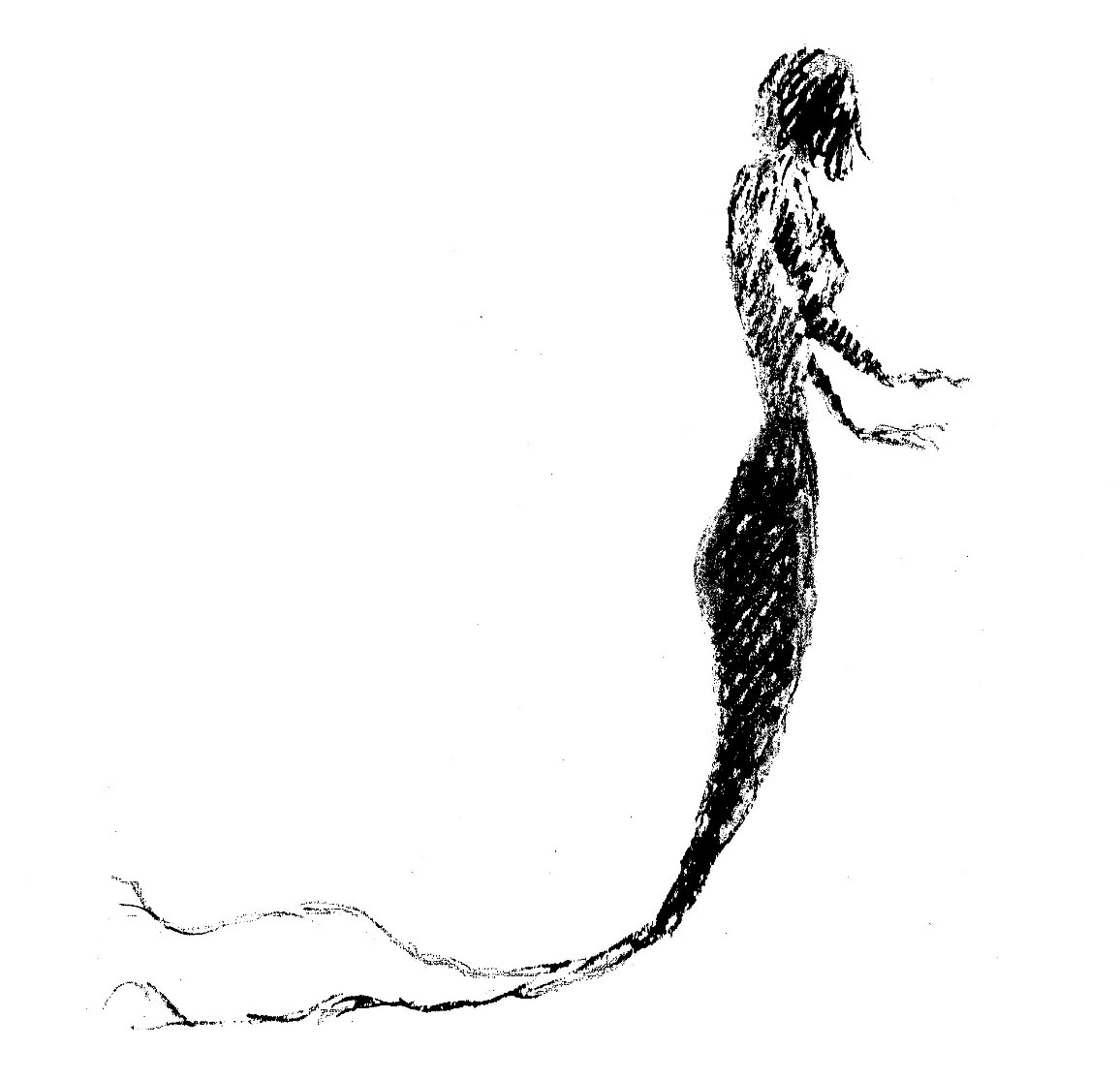Remember to breathe… remember to breathe… remember to…
The wave breaks.
There is no air. My feet reach for the sky, arms flail for nothing, the mask leaks. My whole world is grey-green and spinning. A roar so primal that even dragons would hide rips through my spine. The sea, is shouting.
Shouting.
Shouting through my skin.
… BREATHE!
An eternity is spent maybe drowning.
Then, a gasp – spitting spume – and my head and shoulders emerge like some sort of new monster unfrozen from the wash.
A concerned face bobs into view. I raise a thumbs up to the waiting camera just as a second roar responds with a thud that should surely have broken every bone.
There is no fear like that space where faith once lived. I see it’s face in every rearing yawn of this bay, with every smash and snarling curl that flips my inconsequential striving over and again, casting me adrift onto the resisting shore, just so much flotsam on empty shells.
I turn back; the wave stoops over me with a sneer, taller than beauty, a glorious wing of water trimmed in the clearest white lace. I dive directly into her feathered speech, feel the power gather, lift and discharge me into calm.
The deeper water does not crack or scream like where she greets the land. Instead, there is a fierce swell that does not care to say much at all. I rock there, filled with freedom.
That was the day before yesterday, on the eastern side of the Dinas Head Peninsular in Pembrokeshire, Wales. Today, under a shy moon I am driving to swim at Aberporth before the Covid crowds arrive. I work through the night, for at that time there is just enough internet (especially during school days) due to our rurality being in the 2% of the UK population who are without the legal minimum 10Mbps. Thus, by 5.30am I am exhausted – but it is this, or nothing.
I am immunocompromised and have been shielding for >six months, other than having to get food and receive emails during ‘office’ hours (zooming in supermarket carparks is my new normal). The restriction-induced release from ablest expectations has been interesting; observing others experiencing what is usual for me (social avoidance, home-schooling, income strain, minimal supplies, acedia, et al) has provoked an odd sense of levelling, albeit temporary. Creative solutions to difficult circumstances are my daily fare.
As a late in life PhD student on a stipend, living in the middle of almost-nowhere, I have been undoubtedly blessed during this pandemic. We have outside space, shared resources, and flexible time. However, I don’t know if I’m going to be allowed to continue with my research. The constant uncertainty is self-eroding. Without the candidacy, not only will the previous work have been in vain, but I’ll be unemployable – and I’ll have no income with which to support myself and my autistic son. The pressure is both logistical, and personal. The whole of who I am is inside this research: the Irish and Celtic Seas, queer feminism, experimental poetics, climate activism – and mermaids.
I’m writing a new myth, a myth about a mermaid. A mermaid who has escaped from abuse on land as a woman, to a new life in the sea, a sea polluted by plastic. A myth where the old way of living is no longer tenable. It’s a coda to Cantre’r Gwaelod, a Medieval Welsh story about flooding. My previous work as an archaeologist also focused on inundation, so I am accustomed to being on the beaches here during challenging times. With this remit though, I am here to swim in the piercing salt. To create from the experience of shifting perspectives.
I mostly do this accompanied by the Ceredigion Bluetits. The Bluetits (and Bluebells) are a group of groups of chill swimmers. Begun by Sian Richardson in 2014, the Bluetits’ open attitude of inclusion for all who wish to experience the benefits of wild swimming is refreshing. The women I encounter, have been my only social interaction for what feels like an aeon. We social distance both in and out of the water; but it feels natural. Comradery helps to get one submerged whatever the weather, it also helps with recovery afterwards. There is a sense of safety in the presence of others whilst treading the tide, and again, also afterwards when one can become unwell whilst readjustment takes place. Especially after months of such intense isolation. My left-hand side doesn’t work properly, following a stroke two decades ago, and my brain can be a little erratic. Being in water, is the only time that I am not in pain – and with no swimming pools open, it is the sea, or nothing.
This morning, I arrive to find the cove still asleep. Dreams swish gently over abrasive sand. The serene appearance belies a blunt cold though, and it takes me longer than everyone else to adjust, gulping at the equally still clouds, seeking that blissful moment when skin suddenly feels warm – and I am released. Adaptation equals survival.
The quiet is intense. Whilst the others swim out to bright buoys, I remain close to my depth. Young sunlight stretches out from shadowed rooftops that perch precariously on small cliffs. A line of gold ripples towards my solitary gaze, holding steady. The grey all around slowly drenches into an indescribable green, clipped only by dolphin fins and a cormorant who circles enquiringly.
Were it not for the pandemic, I would not be inside these miraculous dawns. I would not be facing off my fear. I would not be re-meeting my battered body under fresh terms. I would not be writing. Yes, there is grief – there are losses – but there is also the sea.
There is always, the sea
“reborn
from turmoil… our second genesis
this strange new birth, this turning-point
[becoming]… our accepted way of life.”
(Alison Bielski, from ‘Across The Burning Sand’, 1970).
Erin Kavanagh
Interdisciplinary Academic, Poet, Artist.
PhD Candidate at Sheffield Hallam University
Based in West Wales, UK.


